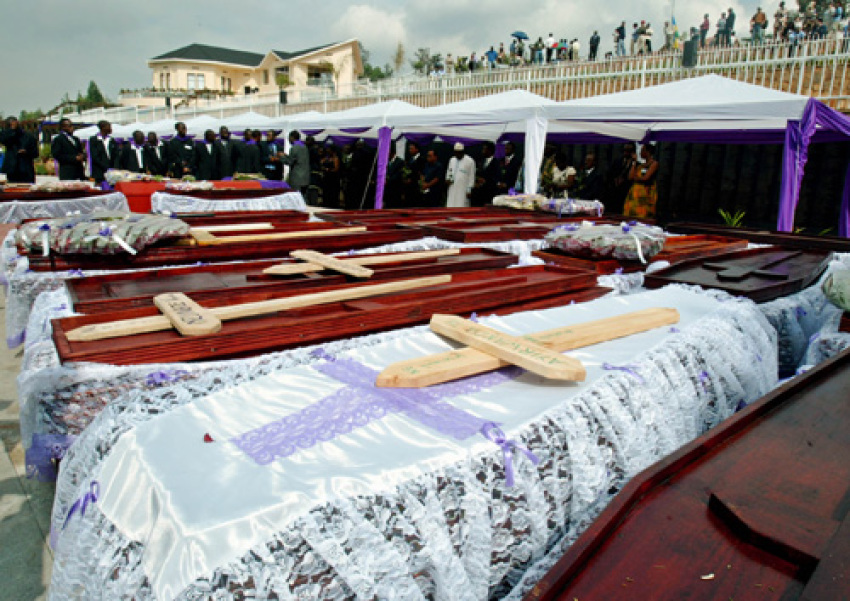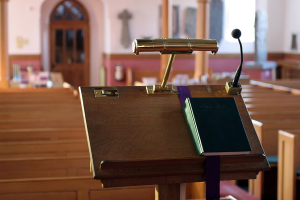Rwandan Genocide Survivor Turned to Christian Faith While Hiding in Bathroom as Family Was Butchered

A Rwandan woman who survived the 1994 genocide by hiding in a bathroom while much of her family, along with hundreds of thousands of people, were slaughtered, said turning to God is the only thing that led her away from hate and into forgiveness.
Immaculee Ilibagiza, now a U.S. citizen and best-selling author who has published a number of books about her experience, including Left to Tell: Discovering God Amidst the Rwandan Holocaust, has been sharing her story of how her father saved her life when the mass slaughter began across the country, according to the Leader-Telegram.
The woman recalled that her father gave her rosary beads and led her to a local pastor's house, who sheltered her and seven other women in a three-by-four bathroom for 91 days, while the genocide spread across villages and towns.
Ilibagiza and the other women stayed safe, but could hear the villagers being murdered outside. She turned to prayer as she was being filled with anger and resentment, asking God to save her from hate.
When she was finally able to leave the bathroom, she found out that nearly her entire family, including both her parents and two of her siblings, had been killed in the rampage. Only a single brother, who was studying abroad, was left alive.
Final figures of the ethnic genocide, largely sparked by a Hutu-led government that targeted Tutsi people, are still not available, though it is estimated that somewhere between 800,000 and one million people died in total.
Ilibagiza, like many other Rwandan survivors, has had to find a path toward forgiveness. At one point she even met and forgave the man who murdered her family members. She told Post and Courier in a previous interview in January that all the forgiveness occurred in the bathroom where she hid.
"I said no more, and through prayer, I was thinking, 'God help me, help me,' but I was just getting this ugliness of anger. It was hurtful. I could feel my anger, and my body was aching. I had a headache thinking about all these people. That process happened for weeks," she recalled.
"I said to God, 'Help me out. If you say pray this way, you must know it's possible. Help me to forgive. I'm willing. ... Then the day came, and I realized in the moment I was competing with evil," Ilibagiza continued.
"I realized the plans I had, to drop bombs on the country, would not just kill those who were against me, it would kill their children. It would kill maybe people who were not even born yet. ... All these things came to light. It was the moment that changed everything."
Reflecting on meeting the murderer in prison, she said that something in her heart was pushing her toward him.
"When I told him I forgave him, he covered his face. He looked down and he covered his face," she said.
The author affirmed that letting anger control her life would not have solved or improved anything.
"My hope is that people can see the power of prayer, that God is great, that this life is short for everybody. Everybody dies in the end," she shared.
"And I hope through my story they can unload their own unforgiveness in their family, among husband and a wife, children and parents, community people, friends who hurt each other."
The Christian Post also spoke in 2014 with a genocide survivor who forgave the people who murdered his family.
"It was a miracle that God opened up the opportunity for me to meet one of the guys, the guy who killed my uncle, and I was able to share that message of love and forgiveness, and to be able to plant the seeds of hope and love in his life. And [tell him] that Christ also came and died for him, and He loves him just as much as He loves me," said Alex Nsengimana of Operation Christmas Child.
"It was probably one of the toughest days of my life, but also one of my most freeing days, because I was able to let go and was able to have the peace that only Jesus Christ can offer."



























